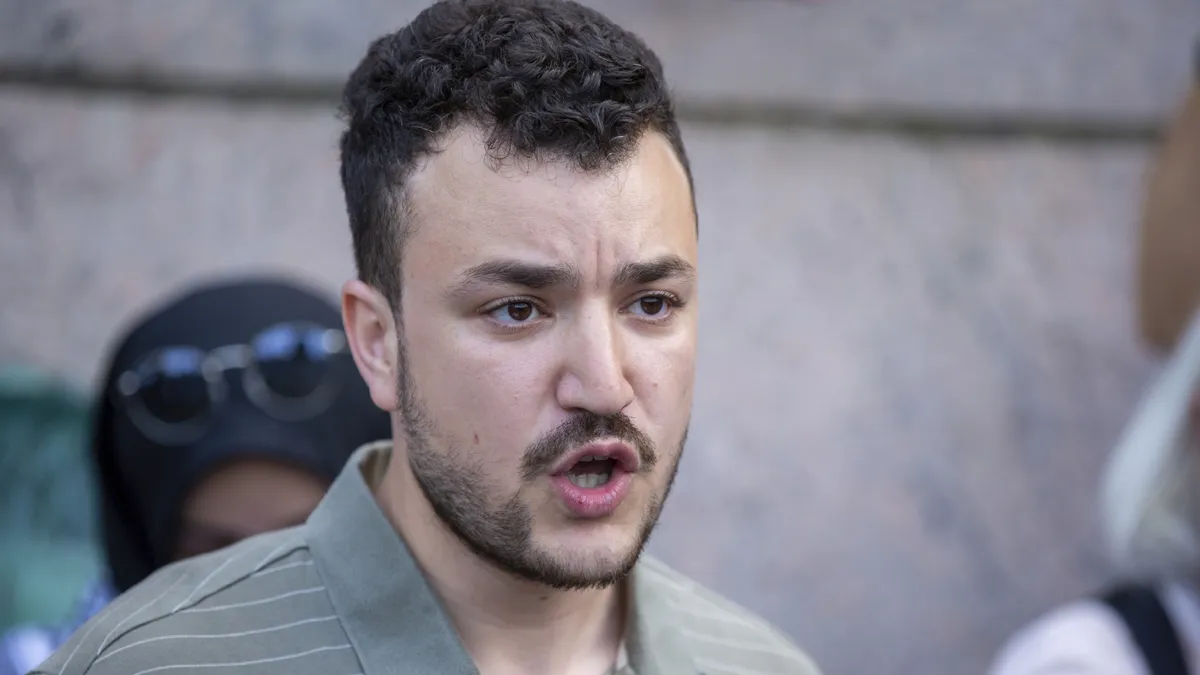
Mahmoud Khalil will continue to be held in federal custody after a federal judge accepted the government’s evolving explanations for his detention at an immigration facility in rural Louisiana. Khalil had anticipated his release on Friday following a ruling from U.S. District Judge Michael Farbiarz. The judge had previously indicated that the government's original justification for Khalil’s arrest—asserting that his pro-Palestinian activism threatened U.S. foreign policy—was likely unconstitutional, and thus could not serve as a basis for continued detention.
In a letter submitted to the judge on Friday, lawyers from the Justice Department clarified their reasons for keeping Khalil in custody. They stated that the accusation regarding his activism was not the sole basis for his potential deportation. Nearly two weeks after Khalil was arrested by ICE agents in New York back in March, the government presented an additional charge in immigration court, alleging that he had committed fraud on his 2024 green card application. According to the government’s lawyers, Khalil's detention is now legally justified based on this separate charge of immigration fraud.
Judge Farbiarz ultimately accepted the government’s reasoning, allowing Khalil’s detention on the fraud charge to proceed. This decision represented a significant setback for Khalil and his legal representatives, who have been working diligently to secure his release since he became the first student arrested during President Trump’s crackdown on pro-Palestinian activists.
Baher Azmy, one of Khalil's lawyers, expressed disappointment, stating, “The government's decision to continue to detain Mahmoud on these patently false and pretextual charges is only more evidence of their cowardly vindictiveness toward him and their unrelenting desire to punish him for speaking out against them and their complicity in genocide.” The Justice Department has not responded to requests for comment, and the Department of Homeland Security has yet to provide any information regarding the case.
Khalil’s arrest followed a rare invocation of a statute by Secretary of State Marco Rubio, allowing him to personally deport individuals he deems to threaten U.S. foreign policy goals. Rubio, along with President Trump and other high-ranking officials, accused Khalil, a prominent leader of pro-Palestinian protests at Columbia University, of having ties to Hamas and promoting antisemitism—claims that Khalil has consistently denied, and for which no substantial evidence has been presented.
The fraud charge added later by immigration officials alleges that Khalil intentionally omitted relevant information about his work history and connections to certain organizations, including a United Nations agency that assists Palestinians, on his green card application. Khalil's legal team has labeled this charge as baseless and accused the Trump administration of using it as a pretext to find alternative grounds for his deportation, should their initial attempt based on his activism be ruled unconstitutional.
Currently, an immigration judge at the detention center in Louisiana is evaluating whether the government has presented sufficient evidence to justify Khalil’s deportation based on the fraud charge. Should the judge determine that the evidence is inadequate, it could potentially lead to Khalil's release, marking a pivotal moment in this contentious legal battle.